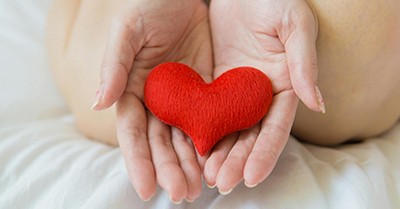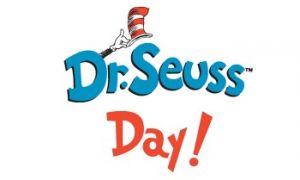In the whirlwind of ratios, regulations, and relentless responsibilities, early childhood educators often forget the most vital resource in any service: themselves. That’s why Wellbeing Wednesday has become more than a calendar quirk—it’s a lifeline. Here’s a restorative reboot for your weekly wellbeing ritual, designed with emotional intelligence, trauma-informed practice, and authentic educator voice at its heart.
Snack Themes
Let’s move beyond sugar highs and into culturally inclusive, emotionally intelligent nourishment:
- “Taste of Home” Day: Invite educators to bring or share a dish that reminds them of family or heritage. Add story cards to honor the memory.
- Mood-Boosting Munchies: Create a snack station with foods linked to serotonin and dopamine—think bananas, dark chocolate, nuts, and herbal teas.
- Colour Therapy Platters: Arrange snacks by color (e.g., “Yellow = Joy,” “Green = Calm”) and pair with affirmations.
Interactive Activities
Keep it light, flexible, and emotionally safe:
- Gratitude Graffiti Wall: A shared space where educators anonymously write what they appreciate about each other or the children.
- Mini Mindfulness Moments: Five-minute guided breathing or visualization sessions. Use child-safe language so it can be adapted for group time too.
- “What Went Well” Bingo: Create bingo cards with positive sector wins (e.g., “Child said thank you,” “Parent smiled,” “Team supported each other”).
Restorative Rituals
These go deeper than surface-level fun:
- Pocket of Positivity Exchange: Each educator receives a small envelope with affirmations or uplifting notes from peers.
- Story Circle: Share one joyful moment from the week—no pressure, just presence.
- Wellbeing Wish Tree: Educators write a wellbeing wish for themselves or the team and hang it on a branch or display.
Tips for Sustainability
-
Rotate responsibility: Let different team members lead each week to avoid burnout.
-
Keep it optional: Participation should feel like a gift, not a chore.
-
Document the joy: Capture moments in your wellbeing folder—yes, it counts as documentation when it builds culture.
Wellbeing isn’t a luxury—it’s a professional necessity. When educators feel seen, safe, and supported, children thrive. So whether you’re rebooting your rituals or just need a spark, remember: joy is a serious business in early childhood.
Further Reading
Mindfulness In Early Childhood Setting
A to Z Of Mindfulness Posters
Mindfulness Activity Cards
Quotes For Educators Posters
Deep Breathing Posters
Mental Health and Well-Being Of Educators







 As an Educator in Australia, your pay rate falls under the Children’s Services Award 2010. This award states the minimum amount that an employer can
As an Educator in Australia, your pay rate falls under the Children’s Services Award 2010. This award states the minimum amount that an employer can When working as a qualified Early Childhood Teacher (with a university degree) within a service, your rate of pay will come from the Educational Services
When working as a qualified Early Childhood Teacher (with a university degree) within a service, your rate of pay will come from the Educational Services When working as a Diploma Qualified Educator your pay rate is from the Children's Services Award 2010. This Award states your minimum rate of pay
When working as a Diploma Qualified Educator your pay rate is from the Children's Services Award 2010. This Award states your minimum rate of pay When working as a Cert 3 Qualified Educator, your pay rate is from the Children's Services Award 2010. This Award states your minimum rate of
When working as a Cert 3 Qualified Educator, your pay rate is from the Children's Services Award 2010. This Award states your minimum rate of Educational Leaders play a crucial role in their early childhood service by ensuring that the educational program aligns with best practices and supports the holistic
Educational Leaders play a crucial role in their early childhood service by ensuring that the educational program aligns with best practices and supports the holistic In early childhood education and care, ratios are more than a technicality—they are a frontline safeguard. Every child deserves responsive supervision, emotional connection, and developmental
In early childhood education and care, ratios are more than a technicality—they are a frontline safeguard. Every child deserves responsive supervision, emotional connection, and developmental With the new national child safety reforms kicking in on 1 September 2025, early childhood services like yours have a real opportunity to lead the
With the new national child safety reforms kicking in on 1 September 2025, early childhood services like yours have a real opportunity to lead the Here’s a comprehensive Mobile Phone and Smart Watch Policy tailored for early childhood education and care (ECEC) services in Australia, aligned with the latest 2025
Here’s a comprehensive Mobile Phone and Smart Watch Policy tailored for early childhood education and care (ECEC) services in Australia, aligned with the latest 2025 The Sea of Fish Challenge is a national initiative that invites children, educators, families, and communities to create and display fish artworks as a symbol
The Sea of Fish Challenge is a national initiative that invites children, educators, families, and communities to create and display fish artworks as a symbol Across the early childhood education and care sector, educators are sounding the alarm: current staffing ratios are insufficient to deliver safe, meaningful, and developmentally appropriate
Across the early childhood education and care sector, educators are sounding the alarm: current staffing ratios are insufficient to deliver safe, meaningful, and developmentally appropriate


